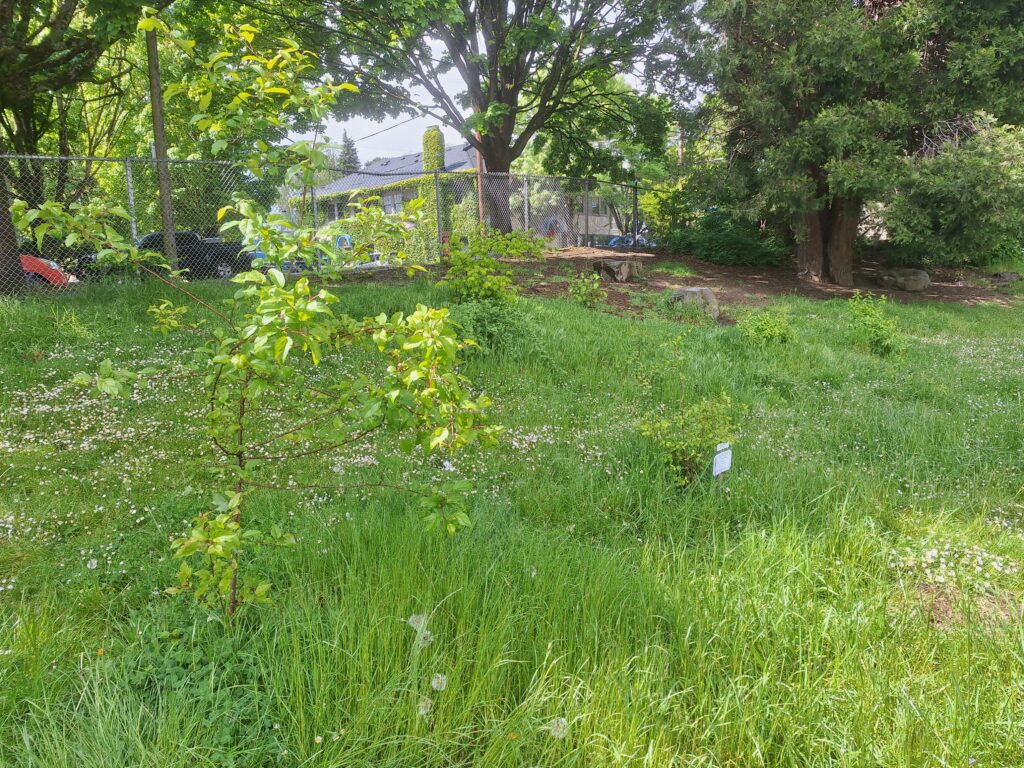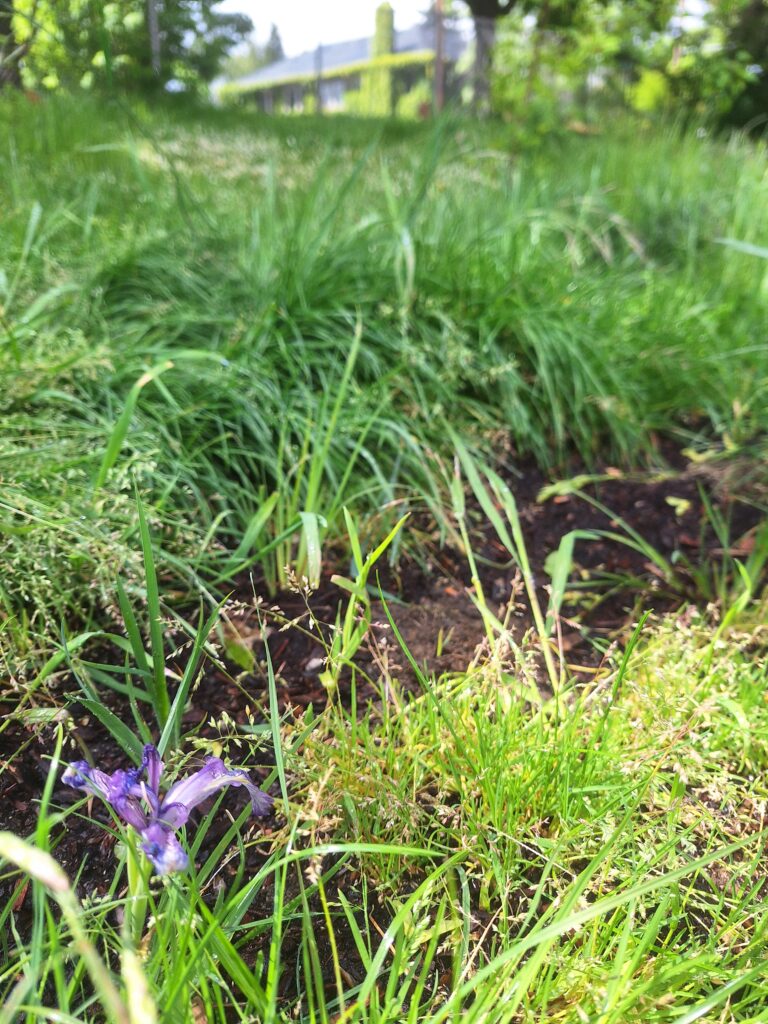Making Sure Nature is Always Accessible: How BHCP has Supported Community Sites
Nature is something that all humans need connection to. As an Indigenous staff member of the program, I have experienced those ties to my natural relatives (plants and animals) being severed first hand through colonization. My goal as Community Coordinator of this program is to help rebuild that connection to nature for BIPOC, LGBTQ people, community members that identify with having a disability, low income families, and other marginalized communities to nature, and that starts with access because everyone should always have access to the healing our natural world provides. In 2022, The Backyard Habitat Certification Program received specific funding to improve the water quality in our local waterways. We at BHCP decided to use this funding to financially support new and existing community sites in our area. More specifically community sites that showed an emphasis on public equity and accessibility to these community sites. We are excited to continue this work in the City of Tigard, starting in 2024. Please read on about the amazing community sites who have joined us in this project, increasing access to nature one space at a time.
Ka Dish Day ( Until we meet again – Nde)
Victor

St Johns Swapnplay
St Johns Swapnplay was selected due to their proximity to Willamette River and as well as their role in serving low-income parents with childcare and supplies. They utilized their funding by adding more native plants to their location. Their primary focus of their project work, since they are already a certified nature garden for the program, was to steward wildlife more by building more canopy layers into their space via native plants. Mason bees were also utilized to establish robust pollinators to support the native plants establishing at this site. The species of native plants selected will assist in stormwater management by pulling water back into the ground rather than allowing the water to flow from the street into rivers.
Serendipity Center
Serendipity Center was selected due to its proximity to the Columbia River and its focus on providing education and community to students who identify with having disabilities. Serendipity Center utilized their funding by removing species of non-native introduced plants that BHCP has recommended to remove. The removal was done by an outside landscaping company who physically removed it to avoid chemical treatment of the space. After removing much of the area’s non-native species, they plan to propagate native species from their already established areas to fill the newly blank area with native species! These native plants will assist in reducing flooding around their food garden and assist in resupplying ground water to the region.

Buckman Elementary
Buckman was selected due to its proximity to the Willamette River and commitment to LGBTQ equity among their students. Buckmans utilized their funding by installing a native garden on their campus. The area prior was fairly blank but with its established cedar canopy was a great option to create a multi-canopy naturescape. Buckman hosted planting days where a workforce group, Connecting Canopies, came together to plant native species in this garden. By removing grass and turf from the areas and replacing it with native species, stormwater absorption will increase tremendously in their area.
Our House of Portland
Our House of Portland was selected due to its proximity to the Willamette River and commitment to serving AIDS/HIV recovery patients as well as connecting them with outside resources after leaving their center. Our House of Portland utilized their SEP funding by adding additional native plants to their already existing nature garden. Much of the work at Our House was done by volunteers who also funded the project work. This funding allowed larger amounts of plants to be purchased in groups to support and sustain their nature garden. Our House also has street bioswales that empty into streams nearby, the robust native garden will assist in filtering pollutants before that water reaches waterways nearby.
Native American Youth and Family Center (NAYA)
NAYA was selected due to their proximity to the Columbia Slough and their commitment to serving multigenerational Indigenous community members with social and community services. NAYA utilized their SEP funding by doing a large-scale removal of non-native Himalayan Blackberry that has blocked a large amount of access to the Columbia Slough. Instead of using western landscaping removal methods, NAYA has been using intentional and traditional methods and practices to slowly remove the blackberry effectively. By selecting community members who have a strong relationship with the center, NAYA has ensured their vision of restoration for their site. More access to the waterway will allow NAYA to continue stewarding the riparian zone between their campus and the slough.
If your organization, non-profit, business, or community center is located in the city of Tigard and you are interested in building a pollinator gardens, planting trees, naturescapes, raingardens, ect. at your location. Follow the link below
Backyard Habitat Certification Program and City of Tigard Funding Inquiry